- Home
- Gore Vidal
The Second American Revolution and Other Essays 1976--1982 Page 3
The Second American Revolution and Other Essays 1976--1982 Read online
Page 3
Fitzgerald’s first-draft screenplay was completed September 1, 1937. Edited by the ubiquitous Professor Bruccoli, Fitzgerald’s screenplay was published in 1978, along with the various letters that Fitzgerald wrote but did not always send to Mankiewicz and the heads of the studio as well as the position paper that he did give to his collaborator Paramore. In an afterword, Professor Bruccoli gives a short history of the film’s production; he also compares the penultimate screenplay with Fitzgerald’s first draft.
Now I have always been suspicious of the traditional Cautionary Tale of Fitzgerald’s fragile genius, broken on the rack of commerce by “an ignorant and vulgar gent” (Fitzgerald in a letter to Beatrice Dance, four months after the picture’s release). Inspired and excited by Professor Brucccoli’s researches, I have now turned scholar-squirrel myself. I have penetrated the so-called “vault” at MGM where I was allowed to read not only a copy of the actual shooting script of Three Comrades (dated February 2, 1938) but also the revisions that Mankiewicz made during the course of the filming. I also know the answer to the question that has so puzzled my fellow squirrels: did Mankiewicz ever receive Fitzgerald’s letter of protest, dated January 20, 1938? He….But let us not get ahead of our story.
On November 5, 1937, the first Fitzgerald-Paramore script was handed in. There was a story conference: one can imagine what it was like. Mankiewicz talking rapidly, eyes opening wide for emphasis while the faded Fitzgerald thought about the last drink—and the next drink; and Paramore did whatever it is that Paramores did or do. Subsequently, two more revised scripts were handed in by Fitzgerald-Paramore. Then between their last script, dated December 21, and the script of January 21, something happened.
On January 20, the day before the penultimate script was mimeographed, Fitzgerald wrote Mankiewicz a furious letter in which he attacked the radical changes that Mankiewicz had made in the script. Although Mankiewicz is on record as saying that “Scott Fitzgerald really wrote very bad spoken dialogue,” I don’t think that this is true. But we shall never know for certain because little of his dialogue ever made it to the screen. In the case of Three Comrades, Fitzgerald thought that “37 pages mine about 1/3.” I’d say it was rather less.
In Fitzgerald’s original script the boy-girl dialogues are charming and, curiously enough, far less wordy than the final version’s. Fitzgerald’s lack of humor might not have been so noticeable in an anti-Nazi tear-jerker were it not for the fact that Mankiewicz is one of the few genuine wits ever to come out of Hollywood. Where Fitzgerald’s dialogue tended to be too sweet, Mankiewicz’s dialogue was often pretty sour; the combination was not entirely happy. In any case, Fitzgerald never did get the point to Mankiewicz’s jokes.
Fitzgerald’s original script was overlong and somewhat confusing. In an excess of conscientiousness, he had studied so many old movies that there was hardly a cliché that he overlooked. When the hero telephones the heroine’s sanitarium “CUT TO: QUICK TRAVELING SHOT OF A LINE OF TELEPHONE POLES IN WINTER—The line goes up a snowy mountain. CUT TO:”…Mel Brooks cutting the line.
Remarque’s story of three German World War I buddies who go into the car-repair business during the rise of the Nazis was plainly not congenial to Fitzgerald’s talents but since he needed the money, he did what all good writers who write for hire instinctively do: he pulled the narrative in his own direction. He made the German girl Pat (a rich girl now poor) into a Fitzgerald heroine and he made the boy Bobby (Erich in the final script) into a Fitzgerald hero. Once again, Scott and Zelda light up if not the sky the first-draft screenplay. Erich now has an unacknowledged drinking problem—hardly a page goes by that he doesn’t think of bottles of rum or ask for a double whisky (not the usual tipple of your average Weimar Republic worker-lad). Erich’s two comrades and the cleaning woman also, as they say in the script, “prosit” quite a lot.
When Pat is dying of tuberculosis in a sanitarium, Fitzgerald has a field day and much of the dialogue is charming. But even in Culver City, Fitzgerald could not escape the shadow of his monstrous friend Hemingway. “Pat (as if to herself): It’s raining. It’s been raining too long. At night sometimes when I wake, I imagine we’re quite buried under all the rain.” Fans of A Farewell to Arms will recall the soon-to-be-dying Catherine’s speech as “All right. I’m afraid of the rain because sometimes I see me dead in it.” Told that this is all nonsense, Catherine agrees: “ ‘It’s all nonsense. It’s only nonsense. I’m not afraid of the rain. I’m not afraid of the rain. Oh, oh, God, I wish I wasn’t.’ She was crying. I comforted her and she stopped crying. But outside it kept on raining.” There was a lot of rain in those days. Luckily most of it was outside.
Fitzgerald was not entirely at ease with the talk of young men in the car-repair business. He was also hampered by Hollywood’s insistence that an English-speaking film about Germans in Germany should be loaded with achs and auf Wiedersehens and Herrs. Mankiewicz also maintains the silliness: the one auf Wiedersehen in the script is his. Since profanity was not allowed in those chaste days, Fitzgerald has the lower orders accuse one another of being “twerps,” “squirts,” “greasepots,” when today he would doubtless have used the more succinct if somewhat bleak epithet for all seasons and occasions “ass-hole.” Fitzgerald also loaded the script with such epithets as “Holy Cats!” and “Great Snakes!” Wisely, Mankiewicz replaced Scott’s cats and snakes with emotion-charged ellipses.
Now for Fitzgerald’s January 20 letter. According to Professor Bruccoli, “Mankiewicz has stated that he never received this letter, which survives in a carbon copy in Fitzgerald’s papers. Since there is no closing on the letter, it is possible that Fitzgerald did not send it.” But Fitzgerald sent the letter; and Mankiewicz read the letter. Proof?
In Fitzgerald’s script the boy and the dying girl are on a balcony, gazing out over what is supposed to be Thomas Mann’s magic mountain but is actually Sonja Henie’s winter wonderland. “Pat: Is that the road home? Erich: Yes. Pat: How far is it? Erich: About five hundred miles. In May you’ll be starting back along that road. Pat: In May. My God, in May!” Fitzgerald left it at that—and why not? The dialogue comes straight from Remarque’s novel.
Mankiewicz kept the dialogue. But then he moved the couple off the balcony and into Pat’s bedroom at the sanitarium. Daringly, they sit on the bed for a really serious chat. After Pat’s “(unbelievingly): In May. My God, in May!” Mankiewicz adds: “(a pause then she turns to him): But we’re not saying what we should be saying this first time together. (he looks at her puzzled) All these months I’d figured out what you would say and I would say—word for word. Do you want to hear? (he nods, smiling) We’d be sitting here on the foot of this bed like this, hand in hand, and you’d ask, what time is it and I’d say that doesn’t matter now. We love each other beyond time and place now. And you’d say, that’s right. God’s in this room with us, lightning’s in this room, and the sea and the sky and the mountains are in this room with us. And you’d kiss me on the forehead and I’d say, how cool your lips are, don’t move away—(he kisses her on the forehead). And you’d say, ought I to be in this room now? Aren’t we breaking the rules? And I’d say must I start now—not breaking them—(he looks into her eyes, unsmiling) because I can’t let you go and then you’d say hello, Pat, and I’d say, Erich, hello, and suddenly it would all be so real it would stab my heart and—Erich: But—darling—” They embrace “fiercely” and the camera sails out the window en route to the magic mountain and Settembrini and Naphta in the distance.
After Fitzgerald read this scene, he wrote Mankiewicz that Pat’s big speech is “utter drool out of True Romances…God and ‘cool lips,’ whatever they are, and lightning and elephantine play on words. The audience’s feeling will be ‘Oh, go on and die.’ ”
Now if there is ever any way of making nervous the sardonic Mankiewicz it is to call him corny. Like Billy Wilder, he does not go in for scenes out of True Romances. Between January 20 and Feb
ruary 2 Mankiewicz rewrote the scene. He cut out “God” and “cool lips” and “lightning.” Here is Pat’s aria revised: “Well, we’d be laying here on the foot of this bed just like this, and I’d ask, is that the road home? And you’d say yes, it’s six hundred kilometers. And I’d say, that doesn’t matter now. We love each other beyond time and place now. You’d say, that’s right—and you’d kiss me.”* And five months later there was not, as they used to say, a dry seat in any cinema of the republic when Margaret Sullavan husked those words to Robert Taylor.
What Fitzgerald had not realized was that dialogue must be precisely cut in quality to the player’s talents and in length to the player’s salary. Margaret Sullavan was a star whose deathbed scenes were one of the great joys of the Golden Age of the movies. Sullavan never simply kicked the bucket. She made speeches, as she lay dying; and she was so incredibly noble that she made you feel like an absolute twerp for continuing to live out your petty life after she’d ridden on ahead, to the accompaniment of the third movement of Brahms’s First Symphony.
Fitzgerald’s death scene went like this: Pat is all in a heap beside her bed, as Erich enters. “Erich: Pat—oh, Pat. (He raises her, supports her. Pat’s head wobbles on her shoulders) Help—somebody! Pat: (very low) It’s all right—it’s hard to die—but I’m quite full of love—like a bee is full of honey when it comes back to the hive in the evening.” On this grammatical error, “her eyes close in death.” Joe will fix that line, I thought, as I put to one side Scott’s version and picked up the shooting script. But, no, Mankiewicz’s final words for Pat are: “It’s all right for me to die, darling—and it’s not hard—when I’m so full of love.” Joe, I say to myself, tensing, make her say “as.” But, alas, Miss Sullavan dies “like a bee is full of honey when it comes home in the evening.” At least Mankiewicz got rid of Fitzgerald’s hive.
In the novel, Remarque killed Pat more realistically—she doesn’t talk all that much. But then she had already made her great speech a few pages earlier on why it’s OK to be dying because she has Erich’s love: “Now it’s hard; but to make up, I’m quite full of love, as a bee is full of honey when it comes back to the hive in the evening. (Emphasis added by me.) Curiously enough, there is no rain in the book. But then the Föhn is blowing.
Mankiewicz’s main contribution to this tear-jerker was an anti-Nazi subplot which the Breen office objected to. They wanted the German thugs to be communists. When Mankiewicz threatened to quit, the Breen office backed down; and the film was politically daring for its time. Mankiewicz also added a certain wit to the girl’s part, annoying Fitzgerald. He thought that Mankiewicz had made Pat “a sentimental girl from Brooklyn”—a mildly anti-Semitic swipe which was off the mark: Mankiewicz’s jokes were usually rather good and as much in character as anything else in the film. Incidentally, for those who subscribe to the auteur theory, Frank Borzage was in no way involved with the actual creation of the film that he humbly directed.
Professor Bruccoli tells us that “after MGM dropped his option in 1939, Fitzgerald freelanced at other studios before starting The Last Tycoon—which, in its unfinished state, is the best Hollywood novel ever written. In 1977 Hollywood turned The Last Tycoon into the worst movie ever made.” Well, I am sure that Professor Bruccoli does not regard himself as a literary or film critic. He is a scholar-squirrel and the nuts that he gathers from past Mays are great fun to crack. To say that The Last Tycoon is the best Hollywood novel is like saying Edwin Drood is the best mystery novel ever written. Since The Last Tycoon is a fragment and nothing more, it’s not the best anything. The Day of the Locust, The Slide Area, the crudely written but well-observed What Makes Sammy Run? are far more interesting “Hollywood novels” than the fragment Fitzgerald left behind, while to say that The Last Tycoon is the worst film Hollywood ever made is silly squirrel-talk. At the risk of betraying an interest, I would propose not the worst film ever made (critics are not allowed to use the sort of hyperbole that scholar-squirrels may indulge in) but a film that was certainly much worse than The Last Tycoon (and based on, dare I say? a rather better work), Myra Breckinridge.
Recently, I ran into the Wise Hack. He was buying the trade papers at the newsstand in the Beverly Hills Hotel. He is very old but still well turned out (blue cashmere blazer, highly polished ox-blood loafers with tassels); he owns a shopping center in downtown Encino; he has emphysema. Although he still keeps up with the latest movie deals, he seldom goes to the movies. “Too many cars,” he says vaguely.
When I mentioned Fitzgerald, he sighed. “At least Ketti made some money out of him.” It took me a moment to realize that he was referring to Ketti Frings who had written, in 1958, a successful stage version of Look Homeward, Angel.
“Did you hear the latest Polish joke?” The Wise Hack’s little eyes gleamed behind thick glasses. “This Polish star, she comes to Hollywood to make a picture and she,” the Wise Hack wheezed with delight, “she fucks the writer!”
Poor Scott: “He had come a long way to this blue lawn, and his dream must have seemed so close that he could hardly fail to grasp it. He did not know that it was already behind him, somewhere back in that vast obscurity beyond the city, where the dark fields of the republic rolled on under the night.” Habent sua fata libelli. Writers have their scholar-squirrels.
The New York Review of Books
MAY 1, 1980
* From the MGM release Three Comrades © 1938 Loew’s Incorporated. Copyright renewed 1965 by Metro-Goldwyn-Mayer Inc.
Edmund Wilson: This Critic and This Gin and These Shoes
On February 2, 1821, gin-drinker Lord Byron wrote in his Ravenna Journal: “I have been considering what can be the reason why I always wake at a certain hour in the morning, and always in very bad spirits—I may say, in actual despair and despondency, in all respects—even of that which pleased me overnight….In England, five years ago, I had the same kind of hypochondria, but accompanied with so violent a thirst that I have drank as many as fifteen bottles of soda-water in one night, after going to bed, and been still thirsty….What is it?—liver?”
In Edmund Wilson’s journal, published as Upstate, he wrote, in 1955: “One evening (August 13, Saturday) I drank a whole bottle of champagne and what was left of a bottle of old Grand-Dad and started on a bottle of red wine—I was eating Limburger cheese and gingersnaps. This began about five in the afternoon—I fell asleep in my chair, but woke up when Beverly came, thinking it was the next morning. I decided to skip supper; and felt queasy for the next twenty-four hours.” The sixty-year-old Wilson does not ask, what is it? as Byron did. Wilson knows. “This kind of life,” he writes, rather demurely, “in the long run, does, however, get rather unhealthy.”
About the time that Wilson was munching on those gingersnaps and Limburger cheese, washed down with fiery waters, I received a letter from Upton Sinclair (whom I had never met), asking me about something. Then, obsessively, from left field, as it were, Sinclair denounced John Barleycorn. In the course of a long life, practically every writer Sinclair had known had died of drink, starting with his friend Jack London. Needless to say, this was not the sort of unsolicited letter that one likes to read while starting on one’s fifteenth bottle of soda water, or to be precise and up-to-date, Coca-Cola, Georgia’s sole gift to a nation whose first century was recently described in a book titled, eponymously, The Alcoholic Republic…of letters, I remember adding to myself when I first saw the book.
In this century, it would be safe to say that a significant percent of American writers are to a greater or lesser degree alcoholics and why this should be the case I leave to the medicine men. Alcoholism ended the careers of Hemingway, Fitzgerald, and Faulkner, to name three fashionable novelists of our mid-century. Out of charity toward the descendants and keepers of the still flickering flames of once glorious literary figures, I shall name no other names. Heavy drinking stopped Hemingway from writing anything of value in his later years; killed Fitzgerald
at forty-four; turned the William Faulkner of As I Lay Dying into a fable.
Meanwhile, the contemporary of these three blasted stars, Edmund Wilson, outlived and outworked them all; he also outdrank them. Well into his seventies, Wilson would totter into the Princeton Club and order a half dozen martinis, to be prepared not sequentially but simultaneously—six shining glasses in a bright row, down which Wilson would work, all the while talking and thinking at a rapid pace. To the end of a long life, he kept on making the only thing he thought worth making: sense, a quality almost entirely lacking in American literature where stupidity—if sufficiently sincere and authentic—is deeply revered, and easily achieved. Although this was a rather unhealthy life in the long run, Wilson had a very long run indeed. But then, he was perfect proof of the proposition that the more the mind is used and fed the less apt it is to devour itself. When he died, at seventy-seven, he was busy stuffing his head with irregular Hungarian verbs. Plainly, he had a brain to match his liver.
Edmund Wilson was the last of a leisurely educated generation who were not obliged, if they were intellectually minded, to join the hicks and hacks of Academe. Wilson supported himself almost entirely by literary journalism, something not possible today if only because, for all practical purposes, literary journalism of the sort that he practiced no longer exists. Instead, book-chat is now dominated either by academic bureaucrats, crudely pursuing bureaucratic careers, or by journalists whose “leprous jealousy” (Flaubert’s pretty phrase) has made mephitic the air of our alcoholic literary republic. But then, Flaubert thought that “critics write criticism because they are unable to be artists, just as a man unfit to bear arms becomes a police spy.” Wilson would have challenged this romantic notion. Certainly, he would have made the point that to write essays is as much an aspect of the literary artist’s temperament as the ability to evoke an alien sensibility on a page while sweating to avoid a double genitive. In any case, Wilson himself wrote stories, plays, novels. He knew how such things were made even if he was not entirely a master of any of these forms.

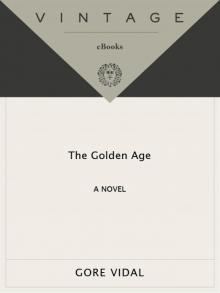 The Golden Age: A Novel
The Golden Age: A Novel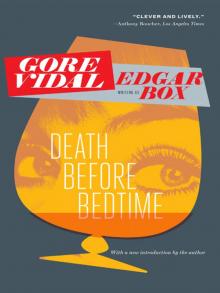 Death Before Bedtime
Death Before Bedtime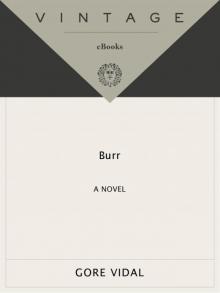 Burr
Burr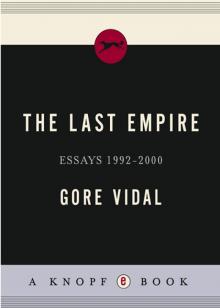 The Last Empire
The Last Empire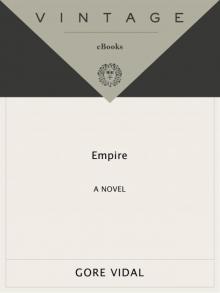 Empire: A Novel
Empire: A Novel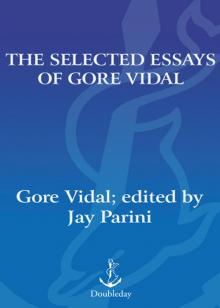 The Selected Essays of Gore Vidal
The Selected Essays of Gore Vidal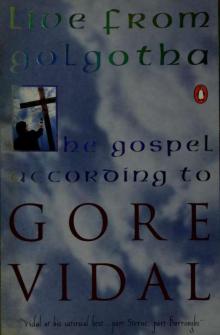 Live From Golgotha
Live From Golgotha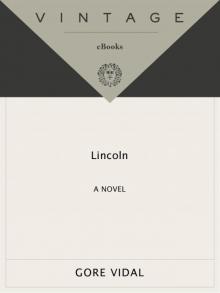 Lincoln
Lincoln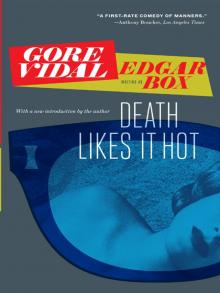 Death Likes It Hot
Death Likes It Hot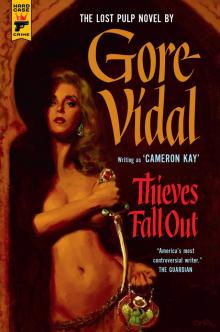 Thieves Fall Out (Hard Case Crime)
Thieves Fall Out (Hard Case Crime)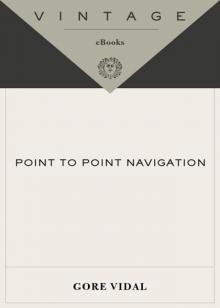 Point to Point Navigation
Point to Point Navigation Williwaw
Williwaw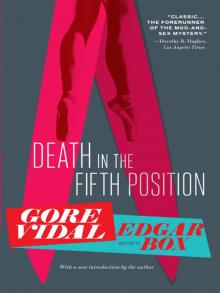 Death in the Fifth Position
Death in the Fifth Position In a Yellow Wood
In a Yellow Wood Julian
Julian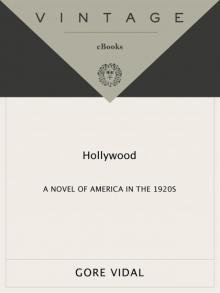 Hollywood
Hollywood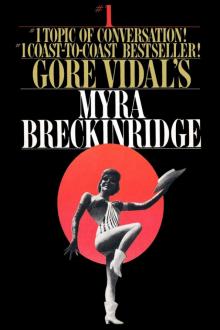 Myra Breckinridge
Myra Breckinridge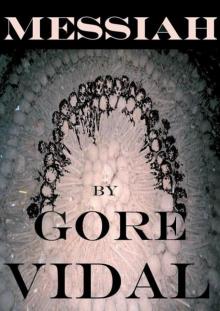 Messiah
Messiah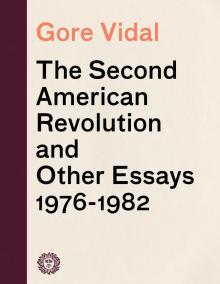 The Second American Revolution and Other Essays 1976--1982
The Second American Revolution and Other Essays 1976--1982 Homage to Daniel Shays
Homage to Daniel Shays Empire
Empire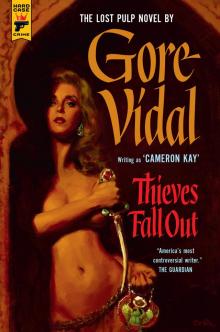 Thieves Fall Out
Thieves Fall Out 1876
1876 The City and the Pillar
The City and the Pillar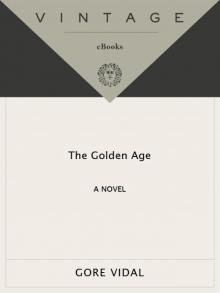 The Golden Age
The Golden Age At Home
At Home